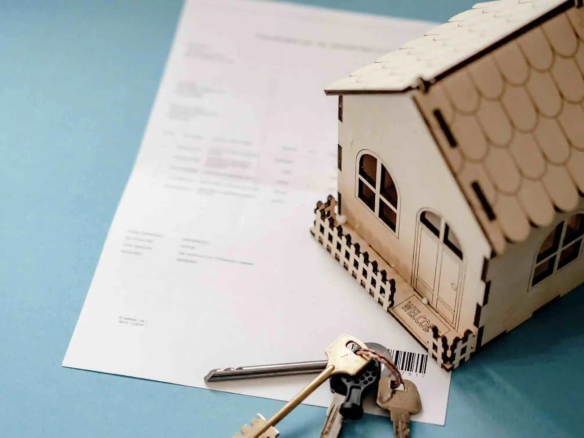As a landlord or property manager, finding reliable tenants who pay rent on time and maintain your property is crucial. While the temptation to quickly fill vacancies can be strong, it’s essential to be thorough in evaluating potential tenants. Careful screening can prevent issues such as late payments or property damage, ultimately saving you headaches in the long run. Allowing a stranger to stay in your property without knowing their background is a significant risk. To protect your investment, follow these screening steps before handing over your apartment to a new tenant.
Conduct a Background and Credit Check: A background check will reveal any criminal, eviction, or fraudulent history. A credit check, facilitated by the Al Etihad Credit Bureau established by the Central Bank of Dubai in 2014, will assess the tenant’s ability to pay their bills. The bureau collects and consolidates credit information from various sources, including utility companies, financial institutions, and government agencies.
The four types of reports the UAE credit bureau generates are short reports, long reports, long with scores, and scores only. If the prospective tenant provides permission for a background credit check, you are permitted to look into open and closed credit cards, monetary judgments, late payments, and more.
In Dubai, residents are given a credit score that runs between 300 and 900. If the credit score is below 600, then that’s something to worry about. Cross-check whether some tenants may leave out their past addresses, whether multiple applications have been filed with lending institutions, and whether there is a payment history for contracts or any overdue contracts.
Check the Medical History
Expats in Dubai already have already had a medical report done for visa purposes. So this is not a very big issue but it can be done if asked. In any case, make sure the prospective tenants get the medical report from a government-approved medical centre.
Check for Criminal Records
Conducting a criminal record is crucial in any solid tenant credit check and should be part of the screening process to make sure the tenant has no history of crime, So, request a Certificate of Good Conduct issued by the Dubai Police Department from your tenant. Make it a part of your tenant screening process to request one of these proofs.
Seek Credit and Background Checks in their Home Country
As mentioned previously above, a background check and a credit report are safety measures and financial barometers, respectively, to be certain that you’re renting out your apartment to the best possible tenant or renter in Dubai.
If there are interested expat tenants or newcomers from abroad, make sure you seek out a credit check from their home country. Additionally, check that the report can be ordered and delivered online rather than by post before going ahead with anything.
Observe their Social Media Accounts
Landlords should always use a third-party background like social media as well as credit checking service to do a quick check on prospective tenants. All data and information are online, whether it’s a quick search on Google to pulling out information from Facebook profiles, Twitter tweets, LinkedIn CVs and others, all while making sure the information online matches up with their profile as a tenant. It’s good to see what they publicly post.
Call Ex-landlords or Get References
Another effective tool is conducting a background check by contacting the tenant’s previous or current landlords. Be sure to ask pertinent questions such as: ‘When did the tenant live there?’, ‘Did they provide proper legal and vacating notices?’, ‘Were you able to return the tenant’s security deposit?’, ‘Did they pay rent on time?’, ‘Would you rent to them again?’, and ‘Did they have any issues with the neighbours?’. These inquiries help verify if the tenant meets their obligations and can be trusted.
Take previous landlord references seriously when reviewing applications. Additionally, you can leverage the Rental Good Conduct (RGC) certificate system launched by the Rental Dispute Centre (RDC) in Dubai. This system checks for any recorded rental problems or provides insights into the tenant’s rental history, ensuring a thorough evaluation process.
Conduct In-Person Interviews
In addition to calling references for landlords, it’s crucial to interview potential tenants in person. Credit scores alone are no longer as reliable as they once were. An in-person meeting allows you to gauge their tone and body language, which can provide significant insights into their character. It’s also important to screen all applicants interested in your property, including couples or roommates, to ensure that every individual meets your criteria.
When interviewing potential tenants, ask about their employment history, reasons for moving, and lifestyle habits. This helps you assess their stability and compatibility with the property. Consider asking questions like, ‘How long have you been at your current job?’, ‘Why are you moving?’, and ‘How many people will be living in the apartment?’
Get Employment Verification and Income Proof
Lastly, it’s essential to verify the tenant’s income to ensure they have the financial stability to pay rent on time. Request for proof of income. This can be in the form of their latest payslip, a signed employment contract, or bank statements showing regular deposits. Verifying income not only helps in assessing their financial stability but also ensures transparency in the tenant-landlord relationship.
These steps provide peace of mind by confirming the prospective tenant’s ability to meet their rental obligations, allowing you to confidently determine whether they have the necessary financial means to maintain timely rent payments and thereby safeguarding your investment.





